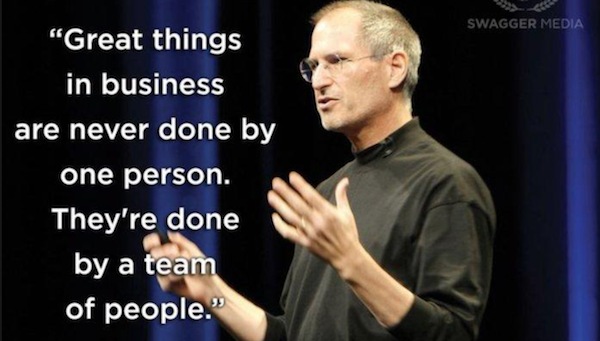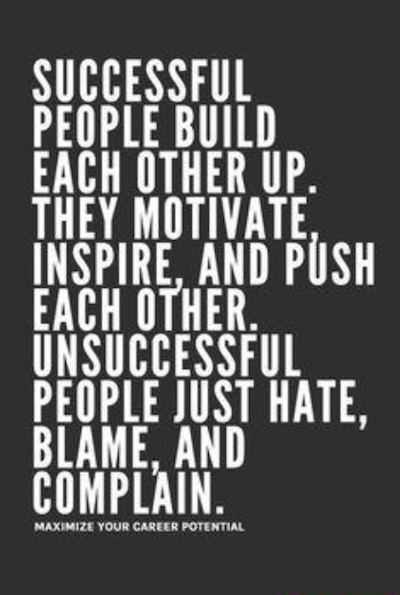
Would you be shocked to read that Dallas-based Cooper Clinic, which specializes in executive health projects, reported
64% of people with management responsibilities would die prematurely from chronic stress caused by their workplace? Would you be surprised that the Palo Alto Medical Group, which provides mobile health exams for employees of many tech companies in the Silicon Valley, reports an
epidemic of 35-year-old engineers and program managers with 60-year-old cardiovascular health?
I'm not shocked.
Almost every company I consult with is a hot-house of psychological madness mostly caused by poorly led, dysfunctional teams. Most of the pain is invisible to senior management, except for failure to deliver promised innovations customers value. Much of the time, companies create new products or software that does not resemble what a company sold the customer. In these cases, when the company implements the product, they try to convince customers that the crap they deliver is what the customer needs. This situation creates stress and blame.
But this conduct is normal.
Research proves sustained teamwork is one of the most difficult human acts. Teams tasked to create and innovate have an even higher bar.
Anthropologist Augustin Fuentes of Notre Dame University reports creative collaboration is the highest human achievement . . . and the most difficult. If you doubt this fact, consider these questions, "How many high performing teams have you been on? How many frustrating teams have you been on?" Most people report they've been members of high functioning teams no more than 20 percent of the time they worked on a team. And being on a great team seems to be a once-in-a-lifetime work experience.
None of this information surprises me.
Consider the variations of human competence, social intelligence, values, and motives.
Throw in the performance pressures, competing priorities, lack of goal clarity, poor resource allocation, and changing external conditions. Finally, consider that no one trains designated team leaders to master the complexity of leading successful teams.
It's amazing teams work at all.
There may be no greater feeling at work than teaming creatively with others you respect and trust to achieve a goal you all value. Teams are terrible when they don't work, but energizing and satisfying when they do work (a lot like marriage.)
Much of my work focuses on developing high functioning executive teams and successful innovation teams. I've learned great team leaders create a team culture with norms, rules, and expectations that are explicit, reinforced, and if necessary, enforced. The most powerful message a team leader has is to cut people from the team if they don't keep their commitments or violate team norms necessary for success . . . no excuses, no exceptions.
In order to create a powerful and explicit set of success values and mutual commitments, a team leader must hold a "Foundation Meeting" to establish the behaviors and expectations needed to achieve team goals. A "Foundation Meeting" has one primary agenda.
 First - State what the goal is and how success will be measured.
First - State what the goal is and how success will be measured.
This creates goal clarity and focus.
Second - State why the goal is vital to strategic success and the beneficial impact of the goal on the customer.
Team motivation requires both statements.
Third - Answer the Ten Team Questions below.
I developed these questions from working in the trenches with teams tasked with challenges. Designed for discussion among the core team members, the team leader must "own" these questions, communicate them, and enforce them. The answers to these questions form a group constitution that empowers team members to behave in ways that empower the entire team.
Ten Questions to Ask When You Start Working Together
1. What makes you trust someone's competence?
(e.g. education, expertise, experience, leadership position, achievements, personal characteristics, etc.)
2. What behaviors and characteristics impress you when working with a team?
3. How important are punctuality, time limits, and deadlines? (1-10)
4. What level of candor and directness are you comfortable within a work setting? Polite Discretion (1) �" Total Candor (10)
5. Is a commitment a promise to accomplish the goal or a commitment to do your best?
6. What kind of concerns and opposing viewpoints should be aired in public, and which should be discussed offline?
7. In what circumstances do you view failure as the means to drive progress?
8. What's the best way to deal with an underperforming teammate?
9. What's the most important thing your teammates could do to support your best contribution to the team?
10. How do you holistically define team success?
Imagine working on a team whose members agreed to a set of behaviors that applied to everyone. It's refreshing and generates trust and unrestrained teamwork because the need for self-protection and workarounds is largely eliminated.
If you lead a team now, call a re-start meeting and reboot your team with a constitution based on discussing and answering the ten questions.
If you are on a team, pitch this to your team leader and make a strong business case for collaborating on a team constitution. The team will get more great things done faster.
The bottom line.
Mastering SMART team leadership is a critical 21st century leadership skill. People with high social intelligence need to exert more influence in the decaying authoritarian structures of problem-filled organizations of our time. Anyone who believes creative collaboration can thrive in an authoritarian culture better live in a state that legalizes smoking weed because that's a lazy delusion.
If you're feeling stressed by failing teamwork . . . outsmart and out-lead the dunderheads. Help build kick-ass teams that change the future. If you're reading this, you're probably designed to lead teams. So lead.
SMART WOMEN INSTITUTE LAUNCH!
Please join us for the launch of National University's SMART Women Institute. National University is collaborating with leadership expert and women's advocate Will Marré in developing the SMART Women Institute, a science-based organization and transformation, research, and development center.
The purpose of the Institute is to educate, equip, and empower women to lead in business, government, education, nonprofits, and start-up enterprises. The institute's mission is to train one million women in the next five years to be effective leaders empowered to create an abundant and sustainable future for themselves and the organizations they represent.
We scheduled three sessions to make it convenient for you to attend. Each session is designed to introduce you to the institute, engage you in strategic collaboration, and equip you with proven leadership skills that you can immediately use in your career.
Imagine you could make a difference that mattered to the world and mattered to you. Imagine you could make a difference that would benefit humanity and create a future of sustainable abundance. Imagine you are designed to make this impact.
YOU ARE!
Join us on one of the following dates:
Friday, November 17
The Five Habits and Mind-Tricks of SMART Power Women
Friday, December 8
Supercharge Your Career, Work Like a Genius, and Live Like a Butterfly
Location
Torrey Pines South Building, Room 221
11255 North Torrey Pines Road
La Jolla, CA 92037
RSVP to Tiffany Andrade at [email protected] or at (858) 642-8151. Please include the date you plan to attend.
Opinions expressed by the author are not necessarily those of WITI.
Are you interested in boosting your career, personal development, networking, and giving back? If so, WITI is the place for you! Become a WITI Member and receive exclusive access to attend our WITI members-only events, webinars, online coaching circles, find mentorship opportunities (become a mentor; find a mentor), and more!
Founded in 1989, WITI (Women in Technology International) is committed to empowering innovators, inspiring future generations and building inclusive cultures, worldwide. WITI is redefining the way women and men collaborate to drive innovation and business growth and is helping corporate partners create and foster gender inclusive cultures. A leading authority of women in technology and business, WITI has been advocating and recognizing women's contributions in the industry for more than 30 years.
The organization delivers leading edge programs and platforms for individuals and companies -- designed to empower professionals, boost competitiveness and cultivate partnerships, globally. WITI’s ecosystem includes more than a million professionals, 60 networks and 300 partners, worldwide.
WITI's Mission
Empower Innovators.
Inspire Future Generations.
Build Inclusive Cultures.
As Part of That Mission WITI Is Committed to
Building Your Network.
Building Your Brand.
Advancing Your Career.



Comments